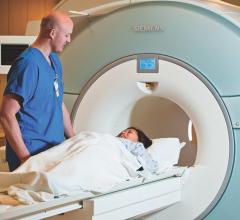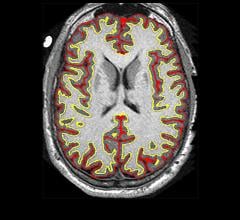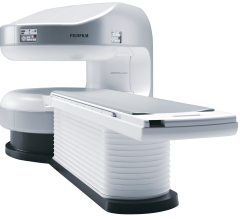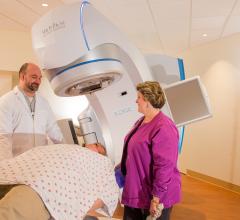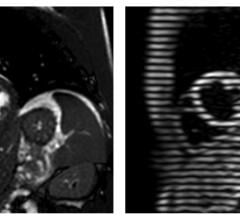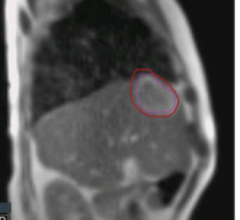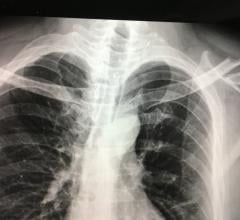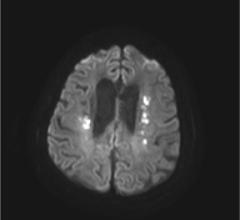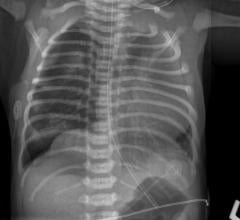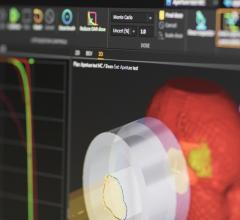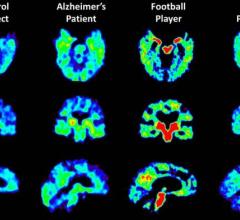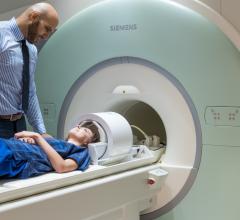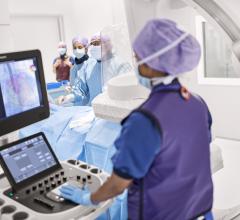A new report from data and analytics company GlobalData suggests that Amazon is poised to make huge strides in healthcare as the Internet retail giant prepares to enter a new market. The report highlights a business model that facilitates easier connectivity between providers and patients, a powerful online platform and its artificial intelligence (AI) interface, Alexa.
A new, highly accurate magnetic resonance imaging (MRI) technique can monitor iron levels in the brains of multiple sclerosis (MS) patients. The technique could also help identify those at a higher risk for developing physical disability, according to a study published in the journal Radiology.
August 30, 2018 — Results from a clinical trial of more than 250 participants with progressive multiple sclerosis (MS) ...
Fujifilm’s APERTO Lucent is a 0.4T mid-field, open MRI system addressing today’s capability and image quality needs ...
August 29, 2018 — Although the success or failure of radiation therapy for cancer has long been associated with the ...
A newly developed rapid imaging protocol quickly and cheaply diagnosed heart ailments in patients in Peru, according to new research in Journal of the American Heart Association.

SPONSORED CONTENT — Fujifilm’s latest CT technology brings exceptional image quality to a compact and user- and patient ...
A discussion with Kevin Moore, Ph.D., DABR, deputy director of medical physics and associate professor, University of ...
SPONSORED CONTENT — Fujifilm’s latest CT technology brings exceptional image quality to a compact and user- and patient ...
Respiratory tumor motion often complicates the delivery of precision radiation treatment. Over the past two decades ...
August 28, 2018 — A new study has demonstrated a method that produces novel light beams from synchrotron light sources ...
iSchemaView announced that more than 575 stroke centers in 22 countries have selected the RAPID advanced imaging platform for cerebrovascular imaging, with 520 currently installed. RAPID technology assists physicians in the analysis of brain images using automated tools for CT ASPECTS, computed tomography (CT) angiography, CT perfusion, magnetic resonance (MR) diffusion and perfusion for more than 85,000 stroke cases per year. RAPID is also currently deployed in six multi-center clinical trials globally.
SPONSORED CONTENT — EnsightTM 2.0 is the newest version of Enlitic’s data standardization software framework. Ensight is ...
In the largest known brain imaging study, scientists from five institutions evaluated 62,454 brain single photon emission computed tomography (SPECT) scans to investigate factors that accelerate brain aging. The study — conducted by scientists from Amen Clinics (Costa Mesa, Calif.), Google, Johns Hopkins University, University of California Los Angeles and the University of California San Francisco — encompassed more than 30,000 individuals from 9 months old to 105 years of age.
The Radiological Society of North America (RSNA) has launched its second annual machine learning challenge. The RSNA Pneumonia Detection challenge invites teams to develop algorithms to identify and localize pneumonia in chest X-rays.
Tsuyama Chuo Hospital in Okayama Prefecture, southwest Japan, has commenced clinical use of RayStation to plan pencil beam scanning (PBS) treatments at its Proton Beam Cancer Center. On May 15, the center carried out the world’s first patient treatment using RayStation together with Mitsubishi Electric’s proton therapy system, with a plan created in RayStation 6.
Did you know that approximately one-third of all the data in world is created by the healthcare industry and that ...
August 24, 2018 — In a small study of military personnel who had suffered head trauma and had reported memory and mood ...
Children with certain types of brain tumors who undergo radiation treatment are less likely to recall the specifics of events occurring after radiation than to remember pre-treatment happenings, according to a Baylor University study. The study compared these children to children with healthy brains.
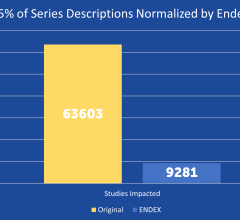
SPONSORED CONTENT — EnsightTM 2.0 is the newest version of Enlitic’s data standardization software framework. Ensight is ...
A European research group has developed a system that allows doctors to both improve the accuracy of diagnosing malignant cells and to provide additional opportunities for cancer treatment. The magnetoferritin compound is the main element of the new system. The research article has been published in Advanced Functional Materials.
Researchers at Ruhr-Universität Bochum have analysed why certain people tend to put tasks off rather than tackling them directly. Using magnetic resonance imaging (MRI), they identified two brain areas whose volume and functional connectivity are linked to an individual's ability to control their actions. The research team — headed by Caroline Schlüter, Marlies Pinnow, Ph.D., Prof. Onur Güntürkün, and Erhan Genç, Ph.D., from the Department of Biopsychology — published the results in the journal Psychological Science on Aug. 17, 2018.
Radiological Society of North America (RSNA) President Vijay Rao, M.D., the David C. Levin professor and chair of ...
RAD Women (#RADxx), a networking group for the advancement of women in radiology and imaging informatics, announced the opening of nominations for the 2018 RADxx Awards. The RADxx awards recognize the achievements of women in the field of medical imaging informatics, as well as anyone — both men and women — who have supported the career advancement of women in medical imaging informatics.
Philips recently announced the introduction of the Epiq CVx cardiovascular ultrasound system. Built on the Epiq ultrasound platform, Epiq CVx is specifically designed to increase diagnostic confidence and simplify workflow for clinicians, giving them more time to interact with their patients and reducing the need for repeat scans. According to Philips, 95 percent of a group of clinicians who were shown the new system believed it offered improved image quality: sharper and clearer images [1]. Philips is also introducing the Epiq CVxi, specifically tailored for use in the interventional lab. Both systems are CE marked and have received 510(k) clearance from the U.S. Food and Drug Administration (FDA).
Rice University nanoscientists have demonstrated a method for loading iron inside nanoparticles to create magnetic resonance imaging (MRI) contrast agents that outperform gadolinium chelates, the mainstay contrast agent that is facing increased scrutiny due to potential safety concerns.


 August 31, 2018
August 31, 2018 
